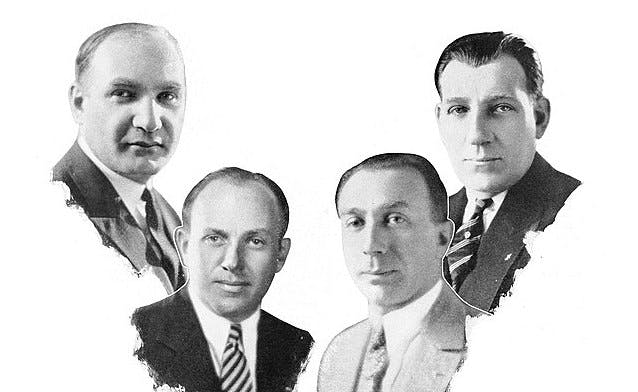
Can Trump ‘Nationalize’ Elections?
By THE NEW YORK SUN
|Chris Yogerst has a virtually Dostoevskyan story to tell: Whatever their differences in personality and outlook, the movie-making brothers remained dedicated to social progress and moral uplift.

Already have a subscription? Sign in to continue reading
$0.01/day for 60 days
Cancel anytime
By continuing you agree to our Privacy Policy and Terms of Service.
By BRADLEY CORTRIGHT
|